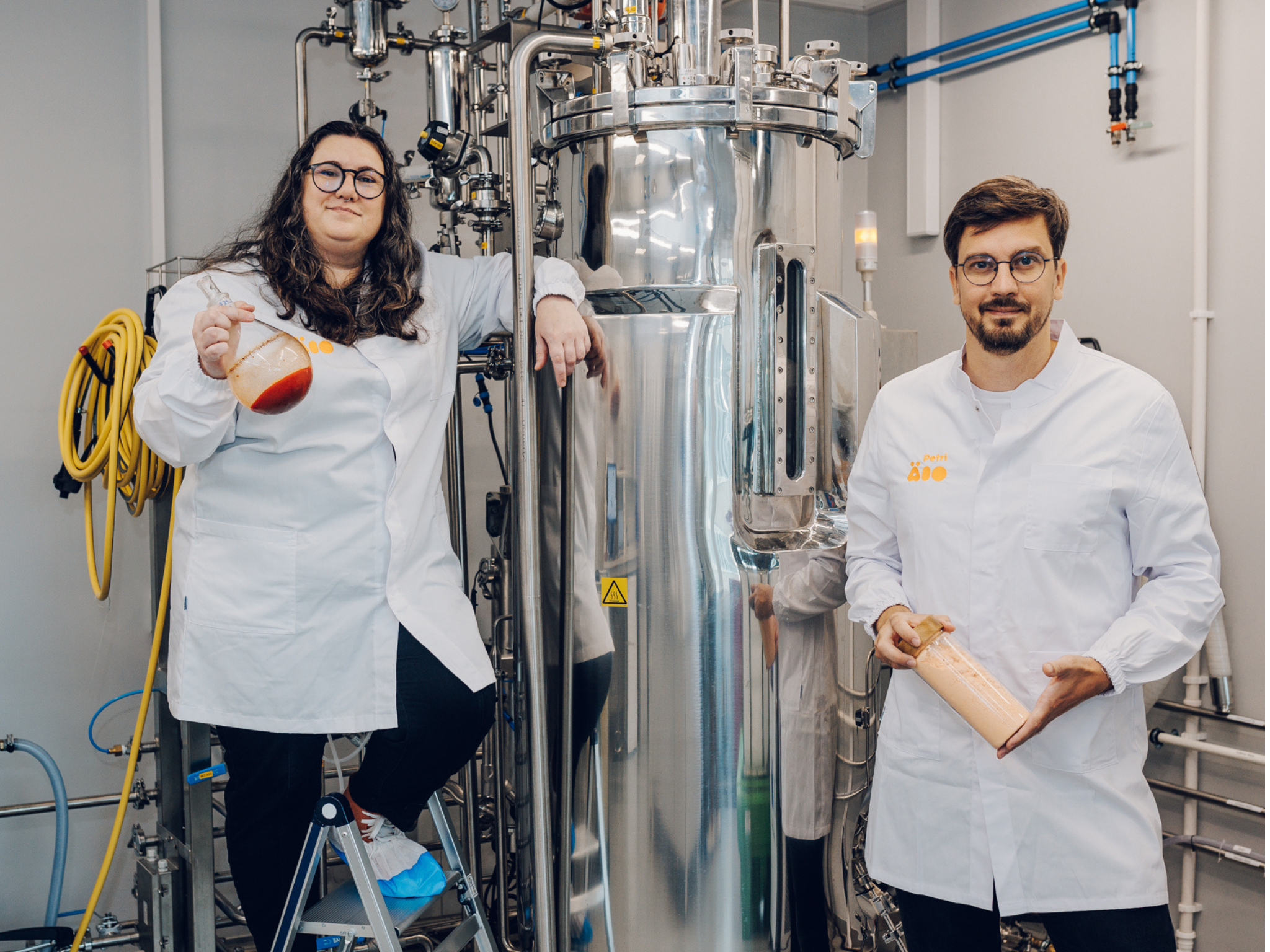
Estonian startup Äio has secured €1M ($1.1M) in a government grant to speed up the development of its yeast-derived sustainable fat alternative, specifically for use in cosmetics.
With the EU set to ban the import of products featuring deforestation-linked palm oil, food and personal care manufacturers are scrambling to find greener alternatives.
One startup offering a solution is Äio, which uses specialised yeast to turn wood and agricultural industry byproducts – like sugars extracted from sawdust – into sustainable fats and oils via fermentation.
“Until recently, sustainable solutions have been held back by performance or price-related concerns compared to ingredients like palm or coconut oil,” says Magdalena Koziol, head of cosmetics development at the firm.
“Through research, development, and scientific validation, we’re showing that fermentation-derived ingredients have huge commercial potential for a future where both everyday and luxury beauty products don’t come at the cost of our environment or human health,” she adds.
To bolster its cosmetics applications, the firm has now received €1M ($1.1M) in grant funding from the state-backed Applied Research Programme, which is organised by the Estonian Business and Innovation Agency.
The capital will support a three-year, €1.8M ($2M) R&D project focused on fermentation-derived lipids and their derivatives, specifically for use in cosmetic and personal care ingredients.
An alternative solution to tackle deforestation and PFAS regulations

Built on research conducted by founders Nemailla Bonturi and Petri-Jaan Lahtvee, Äio spun off from the Tallinn University of Technology in 2022. It uses a ‘red yeast’ microbe created and patented by Bonturi, and ferments it with industrial waste in a process similar to brewing beer or making bread.
The process leverages biomass and precision fermentation to turn these byproducts into nutrient-rich fats, and requires 97% less land and 90% less water than palm oil production, while being 10 times faster.
It has so far developed three fat products. Encapsulated Oil can replace palm oil in the food industry; Buttery Fat is a substitute for animal fats, shortening and coconut oil; and RedOil can swap out fish oil and seed oils, as well as be used in cosmetics and household products.
Äio’s cosmetics solution directly targets palm and coconut oil, fats that are widely used in the personal care space. The company says its “nourishing properties and additional bioactive benefits” make it a natural alternative to petroleum-derived mineral oils too, which can be harmful to both the skin and the planet.
Its ingredients can be used in a range of cosmetics applications, from everyday soap and specialised make-up to high-performance face moisturisers and serums. This, it argues, positions itself as an “attractive partner” for beauty companies big and small.
The sustainable fats will particularly appeal to businesses looking to overhaul their supply chains ahead of the EU’s Deforestation Regulation, which will ban the import of cocoa, palm oil and shea butter linked to deforestation. Violators face fines of up to 4% of their global turnover, and currently, 34% of palm oil imports potentially come from deforested land.
Meanwhile, the personal care sector is also faced with PFAS restrictions as concerns about microplastics come to the fore. “The cosmetics industry is at a turning point. Beauty brands of all sizes now realise that sustainability isn’t just a nice-to-have, it’s an essential requirement driven by increasing customer demand,” says Koziol.
Äio targeting another fundraise next year

Äio is now in talks with cosmetics producers to use its ingredients in various product formulations. Moreover, the startup is sending samples to manufacturers as it embarks on its next phase of commercial development.
“We’re seeing unprecedented interest from manufacturers that realize sustainable sourcing is no longer optional,” says Koziol. “We’re ready to continue scaling up our efforts and are actively seeking partners to join our mission to create real change in the industry. The question isn’t whether the industry will transition to alternative ingredients, but how quickly, and the time to start is now.”
This latest grant will help its scale-up efforts. “This grant represents more than funding, it’s validation from the Estonian government that our technology can fundamentally reshape how cosmetics ingredients are produced,” says Bonturi, who is the company’s CEO.
“We’re now ready to show we can scale that impact on the international stage, bringing smarter, more sustainable ingredient alternatives to an industry that touches the everyday lives of all of us. We’re excited to start commercialising our innovation and to collaborate with forward-thinking beauty and personal care brands around the world.”
Äio has bagged €7.2M from investors to date, most of which came through a funding round last September. It is now planning a further fundraise by Q3 2026 to support its expansion plans.
“Competition for RUP support is high, but in Äio, we see an exceptional team with the scientific knowledge and disruptive attitude that proves that even from a small country like Estonia, it is possible to produce and scale world-changing innovations,” says Ene Viiard, R&D expert at the EIS Applied Research Programme.
Plenty of other startups are using fermentation to develop palm oil substitutes, including British firms PALM-ALT and Clean Food Group, New York-based C16 Biosciences, Dutch startups Time-Travelling Milkman and NoPalm Ingredients, and Bay Area company Kiverdi.
The post Estonian Govt Pumps $1.1M in Äio to Scale Up Yeast-Based Palm Oil Alternative for Cosmetics appeared first on Green Queen.
This post was originally published on Green Queen.